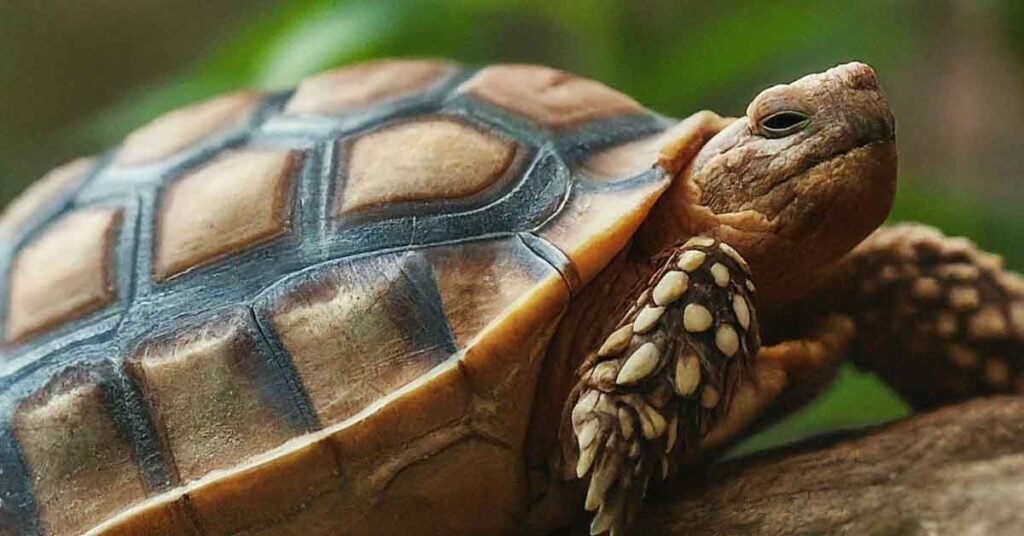Has your usually energetic turtle become a sluggish potato lately? It’s okay, you’re not alone! Many pet owners face this puzzling situation and wonder, “Why is my turtle not moving?” There are many reasons that your turtle is not acting normally or is not moving. From their health issues to environmental changes, the cause can be anything.
Turtles are generally active, quiet, and fun-loving creatures. They love to be on their own, play, and busk here and there. But when your calm and relaxed pet acts in a way they are not supposed to, like not moving or being active, then it is a genuine concern for turtle pet owners. Today, we will discuss the reasons for your question, “Why is my turtle not moving?” So, let’s get started.
Table of Contents
Why Is My Turtle Not Moving?

There can be many reasons why your turtles are not moving, such as sickness, discomfort with the environment, hibernation, etc. Let’s take a look at the possible causes why your turtle acting in this way:
Nature’s Calling
When Hibernation Takes Over
Your seemingly motionless turtle may just be relaxing, which is why it’s not active like other times. Some turtles go into inactivity for a while, which is called brumation, as mammals do during hibernation.
As your turtle goes into brumation, its body temperature and activity level naturally decrease to conserve energy. Turtles living in cooler climates use this adaptation to survive periods of low temperatures and food shortages.
Recharging Under the Heat Lamp
Another natural explanation for your turtle’s lack of movement could be basking. Basking is an essential activity for turtles. It allows them to absorb heat from the sun or a heat lamp to regulate their body temperature.
This warmth is crucial for their digestion, metabolism, and overall health. So, if you see your turtle basking for extended periods, it doesn’t necessarily mean something’s wrong. They’re simply recharging their internal batteries.
Health Concerns
Some inactivity is perfectly normal, but you should be aware of signs that could indicate something’s wrong.
Your Turtle May Be Sick
Unfortunately, a lack of movement can also be a symptom of various illnesses or diseases. Respiratory infections, shell rot, and other health problems can sap your turtle’s energy and activity level.
If you notice any additional symptoms, such as wheezing, discharge, or lethargy, consult a vet for the right treatment.
The Impact of Environment

Sometimes, the environment itself can contribute to your turtle’s inactivity. The wrong water temperature, the wrong size tank, or the wrong lighting can all cause stress.
You should ensure your turtle’s habitat is set up to mimic their natural environment as closely as possible. Provide them with ample space, appropriate temperature zones, and proper UV lighting.
Impaction and Constipation
If your turtle isn’t moving much and hasn’t produced any waste it is supposed to, they might be suffering from impaction or constipation.
It can occur if they ingest substrate (like gravel) in their tank or lack sufficient fiber in their diet. If you suspect impaction, consulting a vet is essential to avoid serious complications.
Other Factors
In addition to natural behavior and health concerns, there are other reasons your turtle might be less active:
Right Temperature
Water temperature plays a crucial role in turtle well-being. If the water in their tank is too cold, it can slow their metabolism and make them sluggish. Your turtle species will need a water temperature that falls within the recommended range.
So, research your pet turtle species and find out the proper temperature setup for their habitat.
Your Turtle May Be Pregnant
Even if you own one single female turtle without any male one, it can still get pregnant. Female turtles can lay eggs without mating. Female turtles approaching egg-laying might show decreased activity.
Therefore, their bodies are focused on developing eggs and preparing them for laying. While they may be less mobile, they should still eat and show typical behavior. If this is the sign, then no need to worry.
Energy Needs of Young Turtles
When baby turtles grow, they’re full of energy, but they also need plenty of rest. You might notice them spending more time basking or resting than adult turtles.
It is entirely normal, as their bodies work hard to grow strong and healthy. So, in a whole day, there should be a section where they rest as we sleep at night to recharge.
Stressed Or Bored
While turtles aren’t highly social creatures, some species sometimes become bored. When a turtle is left alone without enrichment activities, it might get bored and become less active. It’s good to provide them with hiding places, climbing structures, and even commercially available turtle toys.
There can be another reason for your turtle to be stressed or scared. If their surroundings or habitat face noises, louder sounds, or a chaotic environment, they may feel scared or stressed, which can cause them not to move or be active.
Your Turtle May Be Dead
No one wants to think about it, but sometimes, our beloved turtles pass away. If you gently touch your turtle’s legs or shell and they don’t react at all, it could be a sign they’re no longer with you.
When a bad odor comes from your turtle, it is a strong indicator that they might have passed away. Changes in your turtle’s standard shell or skin color, especially if it looks dull or discolored, can be a sign of death.
If you notice any of these signs, it’s essential to remove your turtle from its habitat. While it’s difficult, contacting your veterinarian can be helpful. They can offer guidance and answer any questions you might have.
What to Do If Your Turtle Isn’t Moving

It can be scary to see your usually sprightly turtle staying still. Before you panic, here are some simple steps you can take:
Check By Touching or Poking: Gently touch your turtle’s legs or shell to see if they react. Are they just taking a deep snooze?
Take a Look Around the Habitat: Is everything set up just right? Make sure the water temperature is warm enough for your turtle species and the tank is clean.
When in Doubt, See a Vet: If your turtle isn’t responding or you notice other concerning signs, like wheezing or discharge, it’s best to consult a veterinarian. They can check your turtle thoroughly and recommend the best treatment.
Always ensure your turtle has fresh water and a healthy diet. Avoid sudden changes to their environment or food, as this can add to their stress.
FAQs
Why is my box turtle not moving?
Box turtles might not be moving for a few reasons. Maybe they’re basking in the sun, napping, or brumating (like hibernation) to save energy when it’s cooler.
If they don’t react to touches or show other worrying signs, see a vet. Otherwise, their stillness might be fine.
Why is my turtle not moving much?
If your turtle isn’t zipping around as much as usual, there could be a few reasons for that. They might just be relaxing and soaking up the sun!
Turtles also need rest sometimes so a long nap might be the cause. If it’s the chilly season, your turtle might even be brumating. If you’re worried or notice anything else unusual, a vet visit is a good idea.
Why is my turtle not moving or eating?
Your turtle may not be eating or moving when it is sick. Not only health issues but environmental discomfort, hibernation, stress, and a variety of other reasons can also arise. If your turtle is not eating, it may be suffering from appetite loss, and its diet may not be matching its needs.
Read More: How To Tell If A Turtle Is Dead?
Bottom Line
There are a lot of reasons why your shelled friend might not be moving. Most of the time, it’s nothing to worry about since most cases are natural. There’s a chance they’re catching some rays under their heat lamp, taking a turtle power nap, or even hibernating.
Of course, there are also health concerns that can cause a lack of movement. If you notice any other weird symptoms or your gut feels off, don’t hesitate to reach out to your veterinarian. They’re the turtle whisperers and can help you figure out what’s going on.
